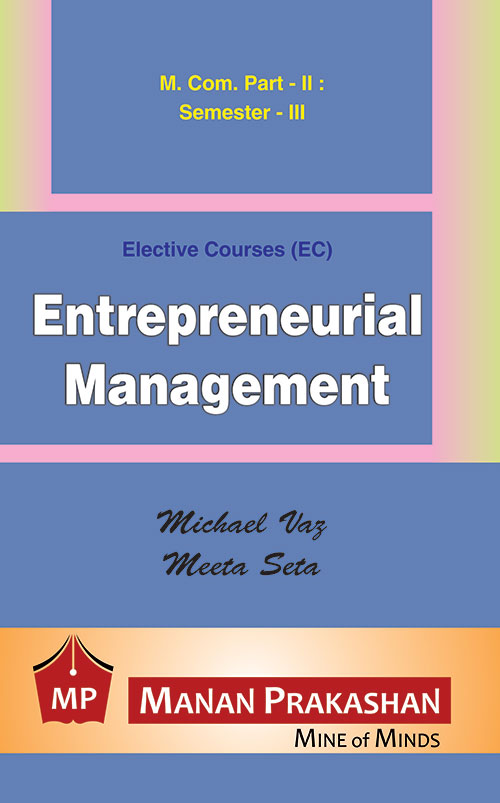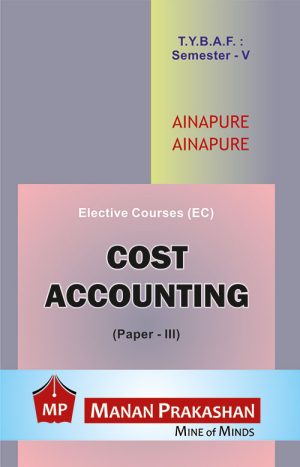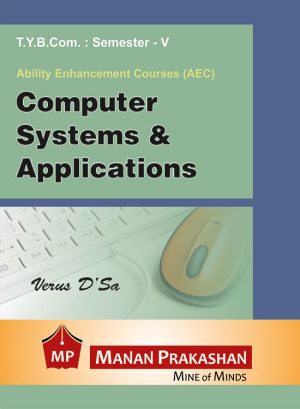Description
Entrepreneurial Management
MCOM Semester III
Syllabus
1. Entrepreneurship Development Perspective (15 Lec.)
♦ Entrepreneurship – Concept, Factors affecting growth of Entrepreneurship, Types of Entrepreneurs, Requirements of Entrepreneurial structure.
♦ Entrepreneurial Culture – Elements of culture, Steps to change Entrepreneurial culture, Entrepreneurial v/s Administrative culture.
♦ Theories of Entrepreneurship – Schumpeter Dynamic Entrepreneurship Innovation Theory, Theory of High Achievement by McClelland, Theory of Personnel Resourcefulness
2. Creating Entrepreneurial Venture (15 Lec.)
♦ Entrepreneurial Environment – Significance, SWOC Analysis, Problems of Entrepreneurship.
♦ Financial Analysis of Entrepreneurial Venture – Significance, Tools of Financial Analysis, Sources of development finance.
♦ Social Entrepreneurship – Features, Importance, Arguments (for and against) Social Entrepreneurship, Women Entrepreneurs – Concept and Special Government schemes for women entrepreneurs in India.
3. Project Management (15 Lec.)
♦ Project – Concepts and Classification of Project, Search of Business Idea, Project Cycle.
♦ Project formulation – Steps for project formulation, Project Design and network analysis – concept and network analysis techniques : PERT/ CPM.
♦ Project Management – Concept, Phases, Project Identification and Project Feasibility Analysis.
4. Assistance and Incentives for Promotion and Development of Entrepreneurship (15 Lec.)
♦ Incentives – Need, Promotion and development Entrepreneurship – Types of Assistance and incentives -Fiscal, Financial, Promotional, Marketing, and Organisational.
♦ NPSD – National Policy for Skill Development and Entrepreneurship 2015.
♦ Institutions in aid of Entrepreneurship Development – The National institute for Entrepreneurship and small business development, District Industry Centre (DIC), National Alliance of young Entrepreneurs






Reviews
There are no reviews yet.